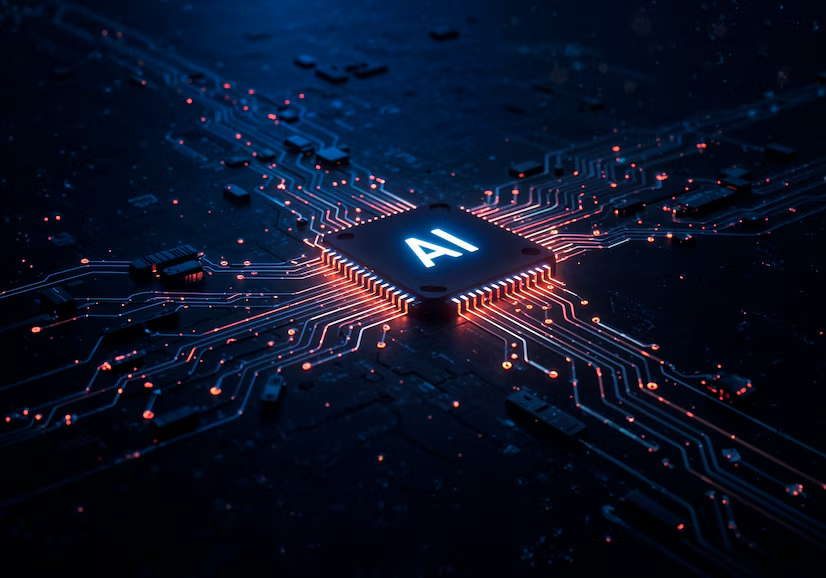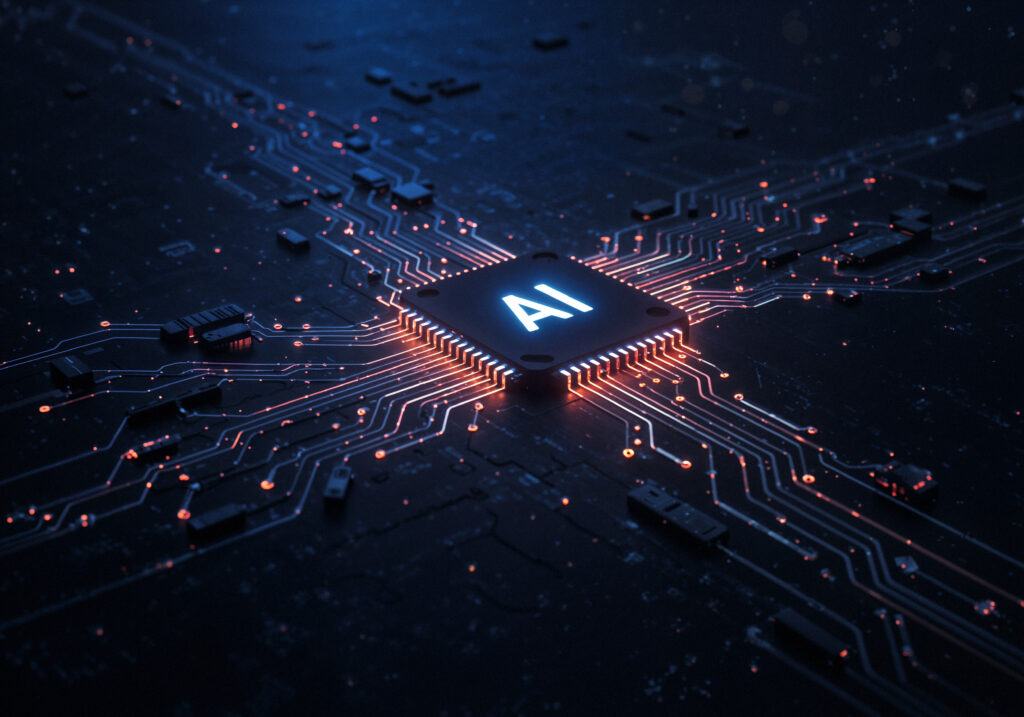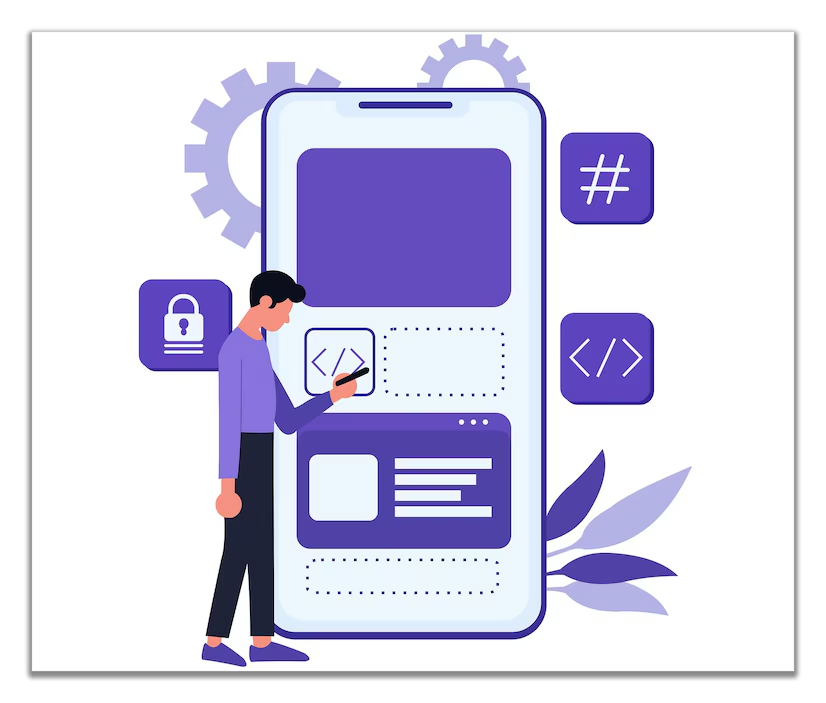Why AI-Powered Apps Are the Future of Mobile Experience
In the rapidly evolving world of technology, apps have become an essential part of our lives. From online shopping to fitness tracking, they shape the way we interact with digital platforms. But as user expectations grow, traditional mobile applications often fall short in delivering seamless and intelligent experiences. This is where AI-powered apps come into play. By integrating artificial intelligence into mobile development, businesses are not only enhancing functionality but also paving the way for a smarter digital future.
This blog explores how AI is changing the landscape of mobile application development, why these smart apps are more than just a trend, and how they’re setting a new standard for user experience.

How AI Enhances Mobile App Performance
The integration of AI (Artificial Intelligence) into mobile apps has introduced an era of automation, predictive analytics, and real-time decision-making. By leveraging machine learning algorithms, computer vision, and natural language processing, developers can build apps that understand user behavior and respond intelligently.
Key performance benefits of AI-powered apps include:
-
Personalization: AI helps apps learn from user interactions and tailor content or services accordingly. For example, a streaming app can suggest shows based on viewing history.
-
Efficiency: AI streamlines processes like search, navigation, and recommendations, reducing friction and improving app speed.
-
Smart Automation: Routine tasks such as form-filling, chatbot interactions, or customer support are automated, saving users time and improving satisfaction.
Real-World Use Cases of AI in Mobile Apps
Across industries, AI is being embedded into mobile apps to add intelligence and value. Here are some examples:
-
Healthcare: Apps now use AI to analyze symptoms, offer preliminary diagnoses, and even schedule appointments. This improves patient care and reduces burden on health professionals.
-
Retail & E-commerce: AI-driven apps can predict shopping patterns, recommend products, and personalize promotions, significantly enhancing user engagement.
-
Finance: Banking apps powered by AI can detect fraud, analyze spending habits, and even provide financial advice.
-
Travel: AI in travel apps helps with route planning, dynamic pricing, and real-time updates on delays or cancellations.
These real-world use cases prove that AI is not just enhancing apps but redefining their core purpose—from serving users to truly understanding them.
Why Businesses Are Investing in AI-Powered Apps
The adoption of AI in app development is no longer optional; it’s a competitive necessity. As mobile usage continues to surge, so do user expectations. Today’s consumers demand faster, smarter, and more intuitive apps—features that traditional code-driven applications can’t always provide.
Here’s why businesses are prioritizing AI app development:
-
Customer Retention: Personalized experiences increase satisfaction and loyalty.
-
Cost Savings: Automation reduces manual tasks, lowering operational costs.
-
Data-Driven Insights: AI turns raw data into actionable insights, helping brands make better decisions.
-
Scalability: AI-powered systems adapt and improve over time, making apps future-ready.
Whether it’s a startup or a large enterprise, integrating AI in mobile apps offers measurable advantages across the board.
Key Technologies Behind AI in Apps
Understanding the core technologies that drive AI in mobile development can help businesses plan better:
-
Machine Learning (ML): Enables apps to learn from data and improve performance without explicit programming.
-
Natural Language Processing (NLP): Allows apps to understand and respond to human language, powering chatbots and voice assistants.
-
Computer Vision: Helps apps process and analyze visual content for tasks like face recognition or augmented reality.
-
Predictive Analytics: AI can forecast outcomes, user behavior, or trends using past data.
These technologies are the building blocks that turn ordinary mobile applications into intelligent digital experiences.
The Role of Data in AI-Driven Apps
For AI-powered apps to function effectively, access to quality data is crucial. Every click, swipe, and input from users generates valuable insights that AI algorithms can process. However, with this capability comes responsibility.
Businesses must:
-
Ensure data privacy compliance (like GDPR)
-
Encrypt sensitive information
-
Be transparent about data usage with users
A well-structured data policy strengthens user trust and enhances the app’s long-term value.
Challenges in Developing AI-Integrated Apps
Despite the potential, developing AI-powered apps comes with its own set of challenges:
-
High Development Costs: Building intelligent features often requires specialized tools and expertise.
-
Data Dependency: AI’s accuracy depends on the availability and quality of training data.
-
Complex Testing: Validating AI models is more complex than standard app features.
-
User Skepticism: Overly automated experiences may make users uncomfortable if not implemented carefully.
These hurdles can be addressed with careful planning, user research, and the right development team.
Future Trends in AI-Powered Mobile Apps
The evolution of AI will continue to shape the future of mobile apps in exciting ways:
-
Edge AI: Running AI on-device instead of the cloud will make apps faster and more private.
-
Voice-first Interfaces: With advancements in NLP, voice-based apps will become more conversational and intuitive.
-
AI in AR/VR: Augmented and virtual reality experiences will become smarter and more immersive.
-
Hyper-personalization: Future apps will offer even deeper personalization based on real-time mood, environment, and behavior.
Staying ahead of these trends will be key to building apps that not only meet current expectations but also anticipate future needs.
Conclusion
AI-powered apps represent a significant leap in how mobile experiences are designed and delivered. By learning from user behavior, making real-time decisions, and adapting over time, these intelligent apps elevate convenience, engagement, and satisfaction.
For businesses, the question is no longer whether to use AI in app development—but how soon. The future belongs to those who adopt, adapt, and innovate. As mobile users demand smarter experiences, integrating AI isn’t just a trend—it’s the new standard for success in the digital age.
https://www.softude.com/blog/ai-powered-apps-a-look-at-must-have-features-and-whats-next/




